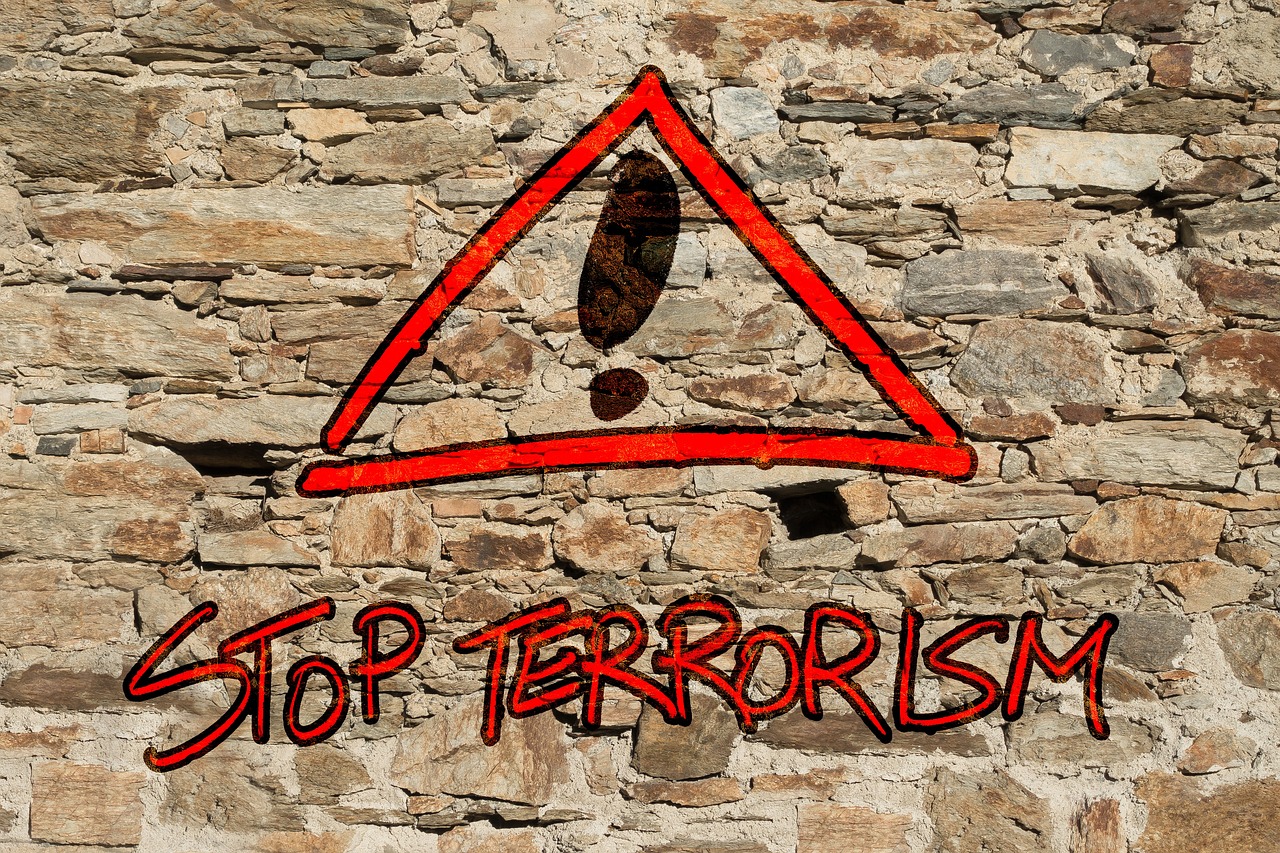Write by Dr. Hussan Ara Magsi
Dr. Hussan Ara Magsi is an Associate Professor in the Department of Political Science at the University of Balochistan, Quetta, Pakistan.

The role of women in terrorism in Pakistan has evolved over the past few decades, as women have been both active participants and victims of terrorism-related activities after 9/11 . Their involvement is complex, shaped by cultural, political, and ideological factors, and their roles within militant groups often differ depending on the context. Women’s involvement in terrorism in Pakistan, is a complex issue influenced by a variety of social, political, and economic factors. Several key reasons can contribute to why some women become involved in extremist activities. The involvement of women in terrorism in Pakistan is shaped by a variety of factors, including social inequalities, family dynamics, emotional manipulation, economic hardship, and ideological indoctrination. Understanding these factors is crucial for addressing the root causes of terrorism and developing strategies for preventing radicalization among women. Most of the militants groups are utilizing young girls to involve in terrorists activities by playing havoc with public infrastructure and masses. Women emerged as suicide bombers by penetrating at different places by targeting the audience .
Women in Pakistan have played various roles in the context of terrorism, both as victims and perpetrators. Their involvement in terrorist activities, particularly in the context of extremism, has become an important aspect of the broader issue of terrorism in the region. Understanding the role of women in terrorism requires a nuanced view of their motivations, participation, and the social and political factors that influence them.
The 5% women are terrorists ,which are involved in suicide bombing in various areas of Pakistan .They are production of sectarian issues ,extremism and separatists movements . Women have been playing roles in different capacities while being part of terrorist organizations across the world. This study points out the current trends of women’s involvement while analyzing different roles they play in perpetrating acts of terrorism.The role of women had started to develop during this period as the Islamist terrorists organizations in collusion with the likeminded political parties of Pakistan provided safe shelters to Al-Qaeda and life . The number of local women are increasing to be involved in terrorist activities in Pakistan .Women are involved to instigate girls and also train them to involve in terrorists activities to promote extremism in Pakistan . A number of women have remained active participants of Islamist terrorist organizations in Pakistan.
The women is involved in terrorist activities in three ways . They are directly involved as a suicide bombers in terrorist activities. They are trained to seep in girls colleges and universities to target the female population ,where the accessibility of male is not possible .They also guide the young girls by enticing them to be prepared for these heinous terrorist activities .
WOMEN INVOLVEMENT IN SUICIDE BOMBING
Women have been among the primary victims of terrorist violence in Pakistan. Attacks on public spaces, markets, mosques, and educational institutions have led to high civilian casualties, with women often being among the most affected.
Many women have been displaced due to terrorist activities, particularly in conflict zones like the tribal areas and Khyber Pakhtunkhwa (KP), where military operations and militant activities have uprooted communities. This displacement has compounded the vulnerability of women, depriving them of access to education, healthcare, and other basic services. The psychological toll on women from terrorist violence—such as witnessing violence, losing loved ones, and living under constant threat—has led to increased trauma and mental health issues.
The women as a perpetrators are directly involved in terrorist activities. The women are involved in suicide –bombing and are linked to extremists groups and militant organizations. Women have been used as bombers in crowded public spaces, where their gender can sometimes make them less suspicious. The women involvement in suicide bombing is a challenge of traditional notions of gender roles. The women are motivated by ideological reasons, coercion and religious thoughts to be involved in terrorists activities. Multiple local and global islamist terrorists organizations are harnessing the potential of female to use them in terrorists activities. These organisations are successful in radicalizing the women to take their direct support for terrorism in Pakistan . Women are actively involved in the strategic planning and execution of terrorist activities within Pakistan .

In Pakistan, women dressed in burqas can perpetrate suicide bombings with relative ease because of the lack of physical security checks. Moreover, organizations use the participation of women as a way to shame men into participating in violent jihad, especially if they are trained in combat and enlisted as suicide bombers. Both men and women’s participation in terrorist groups can be influenced by multiple factors – cultural norms, political and religious reasons. Women, then, are not solely joining terrorist groups to take revenge for their family members, seek romantic relationships with male recruiters or out of coercion by husbands or fathers.
In Balochistan ,many girls are trained as a suicide bombers to inflict harm to public places ,colleges and universities . The young girls take admission in colleges and universities and pretend themselves as a student . They take all knowledge about the where about of the campus that how easily suicide bombing take place .They plan for many month and finally target the place . The horrific incident in Sardar Bahadar Khan women university bus is done by suicide bomber girl . The ongoing insurgency in Balochistan and intervention of neighbouring country of India and Afghanistan is also preparing the women suicide bombers in Balochistan .
In Pakistan, women have been involved in suicide bombings in various regions. These regions have been heavily impacted by militant activities, with groups such as the Taliban using women in suicide attacks, often exploiting them as tools in their campaigns. Many of these women are recruited from impoverished or marginalized backgrounds, sometimes with promises of rewards or out of coercion.
This province of Balochistan, particularly the border regions near Afghanistan, has witnessed several cases of women being used for suicide attacks, often linked to various militant organizations that have a presence in the area. While less common, there have been instances of women involved in suicide bombings in Punjab, especially in cases where militant groups have tried to expand their operations beyond the tribal regions. The involvement of women in suicide bombing in Pakistan is typically linked to the strategies of militant groups, where women may be used to bypass security measures, as they are often less suspected of carrying out such attacks. Some women may be indoctrinated, coerced, or forced into carrying out these acts, while others may be ideologically motivated or manipulated.
CASE STUDIES
1. Fariha, a Female Suicide Bomber
In 2012, Fariha, a 25-year-old woman from the Khyber Pakhtunkhwa province, carried out a suicide bombing attack against a Pakistani military convoy. She was recruited by the Taliban and trained to carry out the attack. Fariha’s involvement in this activity highlights how women in Pakistan have been increasingly used by groups like the Tehrik-i-Taliban Pakistan (TTP) to carry out suicide bombings. These women are often manipulated or coerced by extremist groups, and their involvement is sometimes seen as a tactic to bypass security measures that often focus on male suspect
2. The Role of Women in Lashkar-e-Taiba (LeT)
Lashkar-e-Taiba (LeT), a prominent militant group operating in the region, has recruited women, often from lower socio-economic backgrounds, to engage in terrorist activities. While women are less likely to carry out attacks directly, they play important roles in logistical support, fundraising, and in some cases, as recruiters. Some women have been found operating within LeT’s organizational structure, working as facilitators for male operatives. Additionally, the group has used women to propagate ideological propaganda, using media platforms to appeal to female recruits.
3. The Case of Samia (Not a Real Name) – Radicalized by Family Influence
Samia, a young woman from a conservative family in Pakistan, became radicalized after her brother, a member of the TTP, was killed in an operation by Pakistani security forces. Grieving her brother’s death and inspired by the narrative of martyrdom, Samia became increasingly involved in extremist activities. She was later recruited to serve as a member of an all-female unit that was trained in weapon handling and explosives. Her case illustrates how the loss of a family member can push some women into militant groups, especially when they are provided with emotional support and ideological justification for their actions.
4. Women in Balochistan: A Different Form of Involvement
In Balochistan, women have been involved in separatist movements, particularly with groups like the Baloch Liberation Army (BLA). Although these women may not directly engage in terrorist acts such as suicide bombings, they often serve as supporters, couriers, and recruiters for the groups. In some cases, women are also involved in the propaganda efforts, spreading messages of anti-state sentiment and encouraging others, particularly women, to take up arms for the cause of Baloch separatism. These women view their involvement as a form of resistance against the state of Pakistan.

5. The Case of Aafia Siddiqui
Aafia Siddiqui, a Pakistani neuroscientist who was arrested in 2008 in Afghanistan, is often cited as a high-profile example of a woman involved in terrorist activities. She was allegedly involved in planning attacks on U.S. personnel and was suspected of having ties to al-Qaeda. Siddiqui was arrested for attempting to shoot U.S. soldiers while in custody in Afghanistan. Her case gained significant attention not just due to her role in extremism but also because of her background as an educated woman. Siddiqui’s involvement in terrorism raises questions about the radicalization of educated women and their potential involvement in high-profile terror plots.
6. The Role of Women in the Islamic State (ISIS)
While ISIS’s presence in Pakistan has been less pronounced compared to other regions, women have still been recruited to join the organization. ISIS has actively recruited Pakistani women for various roles, including as wives of fighters and as propagandists. There have been instances of Pakistani women leaving the country to join ISIS-controlled territories, where they contribute to spreading the group’s ideology and assist in logistical support for terror operations. These women are often portrayed as having been manipulated or coerced into joining, and some have been used in the role of recruiters for other women.
7. The Case of “Mothers of Martyrs”
Some women in Pakistan play a pivotal role in shaping the ideological and political environment that leads to terrorist activities. These women, sometimes referred to as “mothers of martyrs,” often glorify the idea of their children or husbands dying in jihad. They frequently serve as figures of emotional support for male fighters and encourage their families to join extremist groups. Their influence can be seen as a cultural reinforcement of radicalization, as they motivate the next generation to participate in violence, seeing it as an honor.
MITIGATORS
Women are also playing a key role in countering extremism in their communities. Women –led civil society groups are highly active in mitigating violence in the society to save the people from the scourge of terrorism .The women in north Waziristan are playing role as a mitigator to save communities . Women can play a vital role in preventing terrorism and mediating conflict by sharing their unique perspectives, building trust, and connecting people across lines of conflict. Women can also be effective in countering terrorist propaganda and extremism. Women can help build trust between parties involved in a conflict Women can help bring parties across conflict lines together to talk .The women can play an effective role in preventing terrorism in Pakistan . Women can provide feedback on counter-terrorism efforts and help identify and address issues that may lead to extremism. Women can help educate communities about the risks of extremism and how to prevent it . Women can help build trust and connect people across lines of conflict .Women can help identify early signs of radicalization ,as fundamentalists often target women,s rights first . Women can be influential messengers in schools, religious institutions, and local government .
CHALLENGES OF TERRORISM
Dr. Zahid Hussain, a journalist and expert on South Asian politics, suggest that women’s involvement in terrorism can take on multiple forms. Women may act as ideologues, recruiters, logistics supporters, or even fighters. In Pakistan, groups like the Taliban and various regional militant organizations have used women both for their ability to infiltrate spaces where men cannot operate and as tools for propaganda and recruitment.
Some experts, such as Dr. Ayesha Siddiqa, a political scientist specializing in Pakistan’s military and security policies, discuss the ideological motivations behind female involvement in terrorism. According to these experts, women who are radicalized may be influenced by a combination of personal grievances, family pressures, social marginalization, and religious extremism. Many women who join militant organizations may be seeking a sense of belonging, empowerment, or a way to avenge perceived injustices.
Women may also be used in strategic roles within terrorist organizations. For example, women may be sent on suicide missions because they are less likely to be searched at checkpoints, making them ideal for smuggling weapons or explosives. Experts argue that the social expectations surrounding women in conservative societies like Pakistan might make their participation more insidious, as they can easily be overlooked or underestimated by authorities.
Conclusion
The role of women in terrorism in Pakistan is multi-faceted and driven by a combination of ideological, social, and geopolitical factors. Women may be active participants or indirect supporters, and their roles can range from bombers and fighters to recruiters and propagandists. Understanding the complexities of their involvement requires considering factors such as family dynamics, personal grievances, and broader socio-political conditions. Effective counterterrorism efforts must incorporate a nuanced understanding of these factors, integrating both men and women in peacebuilding, de-radicalization, and community-based initiatives.
pdcc